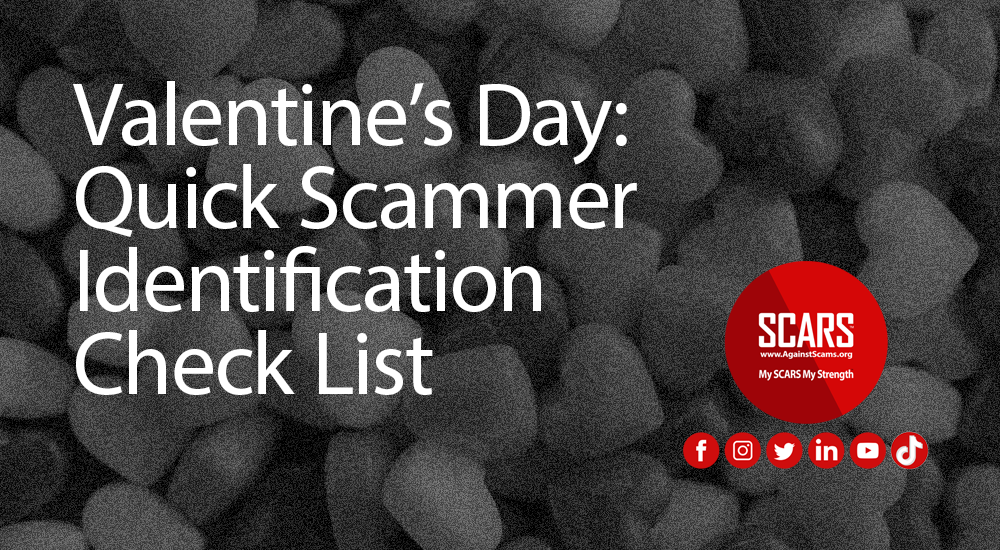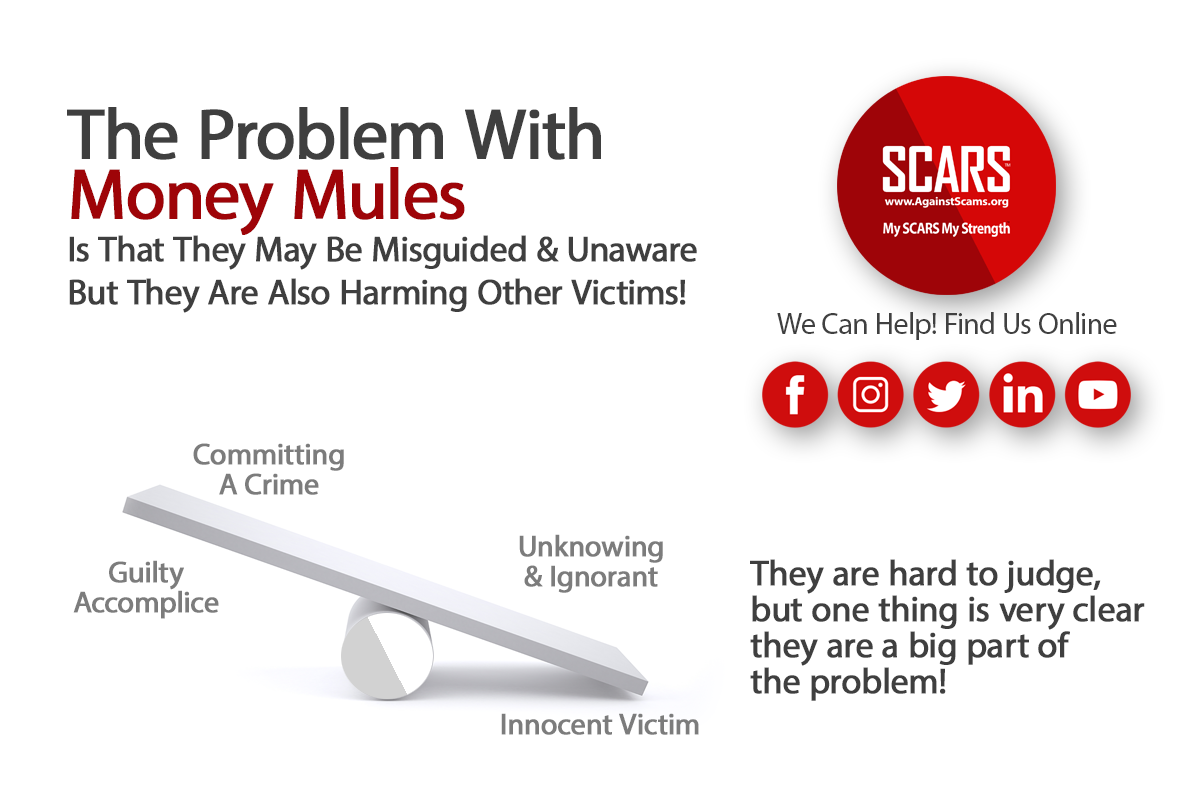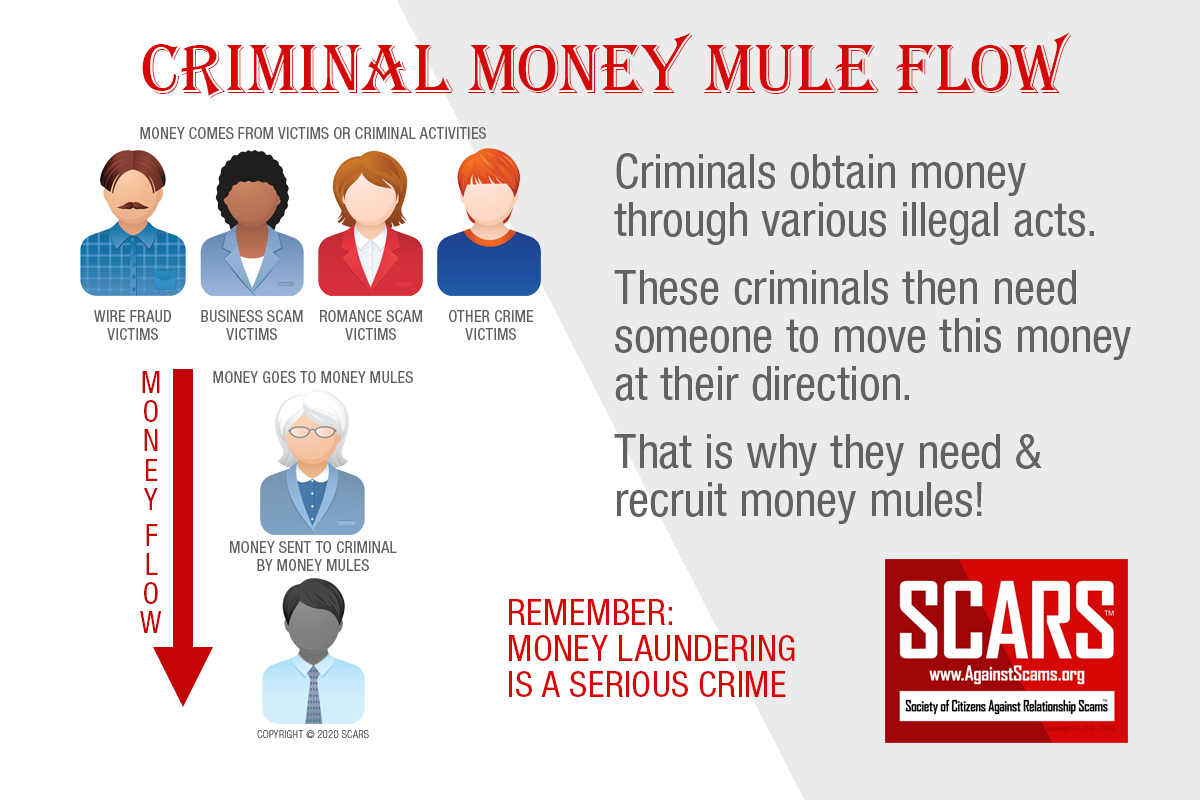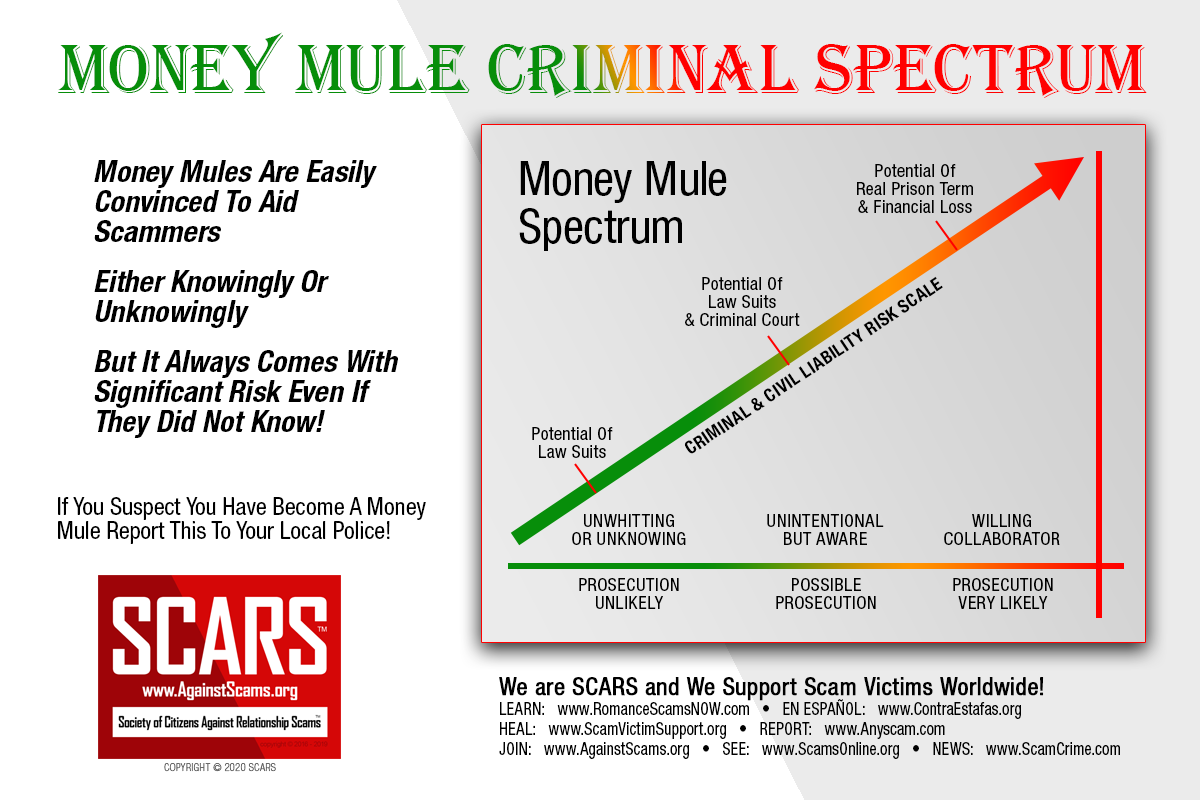
SCARS Institute’s Encyclopedia of Scams™ Published Continuously for 25 Years

Explosion Of Unemployment Fraud In the U.S.
During the Pandemic, the United States is experiencing a Massive upsurge in Unemployment Fraud!
According to the U.S. Secret Service: “Massive Fraud” Against State Unemployment Insurance Programs
A well-organized Nigerian crime ring is exploiting the COVID-19 crisis by committing large-scale fraud against multiple state unemployment insurance programs, with potential losses in the hundreds of millions of dollars, according to a new alert issued by the U.S. Secret Service.
A Real Warning Of Massive Unemployment Fraud!
During the current pandemic, the problem of Unemployment Fraud has exploded.
Scammers are also using other kinds of compromised relationships (from relationship scams) to use identity information from their victims, and even access to financial accounts, to create new fraudulent accounts.
From our SCARS Partner Shannon Slaughter
We have been notified by fraudulent unemployment claim victims that deposit accounts are being opened for the purpose of receiving these benefits.
I suspect it is because state agencies are getting wise to the money mule activity we are used to seeing with this fraud and the fraudsters are now opening deposit accounts in the names of the victims in order to make it look legitimate.
What tips them off is the welcome letter and/or debit card they receive.
I also suspect (no confirmation yet) the fraudsters are transferring the money out via P2P or A2A and that’s why the fraudsters don’t need the debit cards. Fraudsters are currently targeting fintechs and large FIs [financial institutions] to open these accounts.
If you are a victim of a fraudulent unemployment benefit claim, KEEP A CLOSE EYE ON YOUR CREDIT REPORT.
FIs [financial institutions] do not hard hit the credit bureaus anymore for deposit accounts so the only way you will find out is if the account charges off and goes to collection.
I highly recommend placing an alert or freeze on ChexSystems if you have been notified of a fraudulent unemployment claim as it is currently the most widely used product for new customer/member deposit account openings. PLEASE SHARE!
FBI Sees Spike in Fraudulent Unemployment Insurance Claims Filed Using Stolen Identities
The FBI has seen a spike in fraudulent unemployment insurance claims complaints related to the ongoing COVID-19 pandemic involving the use of stolen personally identifiable information (PII).
U.S. citizens from several states have been victimized by criminal actors impersonating the victims and using the victims’ stolen identities to submit fraudulent unemployment insurance claims online. The criminals obtain the stolen identity using a variety of techniques, including the online purchase of stolen PII, previous data breaches, computer intrusions, cold-calling victims while using impersonation scams, email phishing schemes, physical theft of data from individuals or third parties, and from public websites and social media accounts, among other methods. Criminal actors will use third parties or persuade individuals who are victims of other scams or frauds to transfer fraudulent funds to accounts controlled by criminals.
Many victims of identity theft related to unemployment insurance claims do not know they have been targeted until they try to file a claim for unemployment insurance benefits, receive a notification from the state unemployment insurance agency, receive an IRS Form 1099-G showing the benefits collected from unemployment insurance, or get notified by their employer that a claim has been filed while the victim is still employed.
The FBI Advises The Public To Be On The Lookout For The Following Suspicious Activities:
- Receiving communications regarding unemployment insurance forms when you have not applied for unemployment benefits
- Unauthorized transactions on your bank or credit card statements related to unemployment benefits
- Any fees involved in filing or qualifying for unemployment insurance
- Unsolicited inquires related to unemployment benefits
- Fictitious websites and social media pages mimicking those of government agencies
Tips On How To Protect Yourself:
- Be wary of telephone calls and text messages, letters, websites, or emails that require you to provide your personal information or other sensitive information, especially birth dates and Social Security numbers. Be cautious with attachments and embedded links within email, especially from an unknown email sender.
- Make yourself aware of methods fraudsters are using to obtain PII and how to combat them by following security tips issued by the Cybersecurity and Infrastructure Security Agency, including:
- Avoiding Social Engineering and Phishing Attacks
- Protecting Against Malicious Code
- Preventing and Responding to Identity Theft
- Monitor your bank accounts on a regular basis and request your credit report at least once a year to look for any fraudulent activity. If you believe you are a victim, review your credit report more frequently.
- Immediately report unauthorized transactions to your financial institution or credit card provider.
- If you suspect you are a victim, immediately contact the three major credit bureaus to place a fraud alert on your credit records. Additionally, notify the Internal Revenue Service by filing an Identity Theft Affidavit (IRS Form 14039) through irs.gov or identitytheft.gov.
If you believe you have been a victim of identity theft related to fraudulent unemployment insurance claims, report the fraud to law enforcement, state unemployment insurance agencies, the IRS, credit bureaus, and your employer’s human resources department. The FBI encourages victims to report fraudulent or any suspicious activities to the Internet Crime Complaint Center at ic3.gov. You may consult identitytheft.gov for help in reporting and recovering from identity theft.
U.S. Secret Services ties explosion in Unemployment Fraud to Nigerian criminal cartel!
A well-organized Nigerian crime ring is exploiting the COVID-19 crisis by committing large-scale fraud against multiple state unemployment insurance programs, with potential losses in the hundreds of millions of dollars, according to a new alert issued by the U.S. Secret Service.
“a substantial amount of the fraudulent benefits submitted have used PII from first responders, government personnel and school employees.”
“It is assumed the fraud ring behind this possesses a substantial PII database to submit the volume of applications observed thus far,” the Secret Service warned. “The primary state targeted so far is Washington, although there is also evidence of attacks in North Carolina, Massachusetts, Rhode Island, Oklahoma, Wyoming and Florida.”
The Secret Service indicates that the fraud network is believed to consist of hundred of “mules,” a term used to describe willing or unwitting individuals who are recruited to help launder the proceeds of fraudulent financial transactions.
“In the state of Washington, individuals residing out-of-state are receiving multiple ACH deposits from the State of Washington Unemployment Benefits Program, all in different individuals’ names with no connection to the account holder”.
The Secret Service suggests the crime ring is operating in much the same way as crooks who specialize in filing fraudulent income tax refund requests with the states and the U.S. Internal Revenue Service (IRS), a problem that costs the states and the U.S. Treasury hundreds of millions of dollars in revenue each year.
In those schemes, the scammers typically recruit people — often victims of online romance scams or those who also are out of work and looking for any source of income — to receive direct deposits from the fraudulent transactions, and then forward the bulk of the illicit funds to the perpetrators.
PLEASE SHARE OUR ARTICLES WITH YOUR FRIENDS & FAMILY
HELP OTHERS STAY SAFE ONLINE – YOUR KNOWLEDGE CAN MAKE THE DIFFERENCE!
THE NEXT VICTIM MIGHT BE YOUR OWN FAMILY MEMBER OR BEST FRIEND!
By the SCARS™ Editorial Team
Society of Citizens Against Relationship Scams Inc.
A Worldwide Crime Victims Assistance & Crime Prevention Nonprofit Organization Headquartered In Miami Florida USA & Monterrey NL Mexico, with Partners In More Than 60 Countries
To Learn More, Volunteer, or Donate Visit: www.AgainstScams.org
Contact Us: Contact@AgainstScams.org
TAGS: SCARS, Information About Scams, Anti-Scam, Scams, Scammers, Fraudsters, Cybercrime, Crybercriminals, Romance Scams, Scam Victims, Online Fraud, Online Crime Is Real Crime, Scam Avoidance, Unemployment Fraud, Money Mules, Account Access, Criminal, Money Laundering, Financial Responsibility
-/ 30 /-
What do you think about this?
Please share your thoughts in a comment below!
Table of Contents
- During the Pandemic, the United States is experiencing a Massive upsurge in Unemployment Fraud!
- From our SCARS Partner Shannon Slaughter
- The FBI Advises The Public To Be On The Lookout For The Following Suspicious Activities:
- Tips On How To Protect Yourself:
- According to Experian:
- This Identity Theft Method Can Be Difficult to Detect
- How Fraudsters Exploit the Rise in Unemployment
- What to Do if You’re a Victim of Unemployment Fraud
- Can an Unemployment Scam Affect Your Credit?
- The Bottom Line
- Did You Receive Money From A Scammer, Or Give A Scammer Access To Your Accounts?
- According to IDWATCHDOG.com (an Experian Company)
- How the Unemployment Benefits Scam Works
- Employed or Not: Anyone Can Be a Victim
- Unsuspecting Victims Could Be Lured as “Money Mules”
- If You Think You Have Been a Victim of Unemployment Benefits Fraud
- How Employers Can Help Better Protect Their Employees
- PLEASE SHARE OUR ARTICLES WITH YOUR FRIENDS & FAMILY
- By the SCARS™ Editorial Team
Society of Citizens Against Relationship Scams Inc.
LEAVE A COMMENT?
Recent Comments
On Other Articles
- Arwyn Lautenschlager on Love Bombing And How Romance Scam Victims Are Forced To Feel: “I was love bombed to the point that I would do just about anything for the scammer(s). I was told…” Feb 11, 14:24
- on Dani Daniels (Kira Lee Orsag): Another Scammer’s Favorite: “You provide a valuable service! I wish more people knew about it!” Feb 10, 15:05
- on Danielle Delaunay/Danielle Genevieve – Stolen Identity/Stolen Photos – Impersonation Victim UPDATED 2024: “We highly recommend that you simply turn away form the scam and scammers, and focus on the development of a…” Feb 4, 19:47
- on The Art Of Deception: The Fundamental Principals Of Successful Deceptions – 2024: “I experienced many of the deceptive tactics that romance scammers use. I was told various stories of hardship and why…” Feb 4, 15:27
- on Danielle Delaunay/Danielle Genevieve – Stolen Identity/Stolen Photos – Impersonation Victim UPDATED 2024: “Yes, I’m in that exact situation also. “Danielle” has seriously scammed me for 3 years now. “She” (he) doesn’t know…” Feb 4, 14:58
- on An Essay on Justice and Money Recovery – 2026: “you are so right I accidentally clicked on online justice I signed an agreement for 12k upfront but cd only…” Feb 3, 08:16
- on The SCARS Institute Top 50 Celebrity Impersonation Scams – 2025: “Quora has had visits from scammers pretending to be Keanu Reeves and Paul McCartney in 2025 and 2026.” Jan 27, 17:45
- on Scam Victims Should Limit Their Exposure To Scam News & Scammer Photos: “I used to look at scammers photos all the time; however, I don’t feel the need to do it anymore.…” Jan 26, 23:19
- on After A Scam, No One Can Tell You How You Will React: “This article was very informative, my scams happened 5 years ago; however, l do remember several of those emotions and/or…” Jan 23, 17:17
- on Situational Awareness and How Trauma Makes Scam Victims Less Safe – 2024: “I need to be more observant and I am practicing situational awareness. I’m saving this article to remind me of…” Jan 21, 22:55
ARTICLE META
Important Information for New Scam Victims
- Please visit www.ScamVictimsSupport.org – a SCARS Website for New Scam Victims & Sextortion Victims
- Enroll in FREE SCARS Scam Survivor’s School now at www.SCARSeducation.org
- Please visit www.ScamPsychology.org – to more fully understand the psychological concepts involved in scams and scam victim recovery
If you are looking for local trauma counselors please visit counseling.AgainstScams.org or join SCARS for our counseling/therapy benefit: membership.AgainstScams.org
If you need to speak with someone now, you can dial 988 or find phone numbers for crisis hotlines all around the world here: www.opencounseling.com/suicide-hotlines
A Note About Labeling!
We often use the term ‘scam victim’ in our articles, but this is a convenience to help those searching for information in search engines like Google. It is just a convenience and has no deeper meaning. If you have come through such an experience, YOU are a Survivor! It was not your fault. You are not alone! Axios!
A Question of Trust
At the SCARS Institute, we invite you to do your own research on the topics we speak about and publish, Our team investigates the subject being discussed, especially when it comes to understanding the scam victims-survivors experience. You can do Google searches but in many cases, you will have to wade through scientific papers and studies. However, remember that biases and perspectives matter and influence the outcome. Regardless, we encourage you to explore these topics as thoroughly as you can for your own awareness.
Statement About Victim Blaming
SCARS Institute articles examine different aspects of the scam victim experience, as well as those who may have been secondary victims. This work focuses on understanding victimization through the science of victimology, including common psychological and behavioral responses. The purpose is to help victims and survivors understand why these crimes occurred, reduce shame and self-blame, strengthen recovery programs and victim opportunities, and lower the risk of future victimization.
At times, these discussions may sound uncomfortable, overwhelming, or may be mistaken for blame. They are not. Scam victims are never blamed. Our goal is to explain the mechanisms of deception and the human responses that scammers exploit, and the processes that occur after the scam ends, so victims can better understand what happened to them and why it felt convincing at the time, and what the path looks like going forward.
Articles that address the psychology, neurology, physiology, and other characteristics of scams and the victim experience recognize that all people share cognitive and emotional traits that can be manipulated under the right conditions. These characteristics are not flaws. They are normal human functions that criminals deliberately exploit. Victims typically have little awareness of these mechanisms while a scam is unfolding and a very limited ability to control them. Awareness often comes only after the harm has occurred.
By explaining these processes, these articles help victims make sense of their experiences, understand common post-scam reactions, and identify ways to protect themselves moving forward. This knowledge supports recovery by replacing confusion and self-blame with clarity, context, and self-compassion.
Additional educational material on these topics is available at ScamPsychology.org – ScamsNOW.com and other SCARS Institute websites.
Psychology Disclaimer:
All articles about psychology and the human brain on this website are for information & education only
The information provided in this article is intended for educational and self-help purposes only and should not be construed as a substitute for professional therapy or counseling.
While any self-help techniques outlined herein may be beneficial for scam victims seeking to recover from their experience and move towards recovery, it is important to consult with a qualified mental health professional before initiating any course of action. Each individual’s experience and needs are unique, and what works for one person may not be suitable for another.
Additionally, any approach may not be appropriate for individuals with certain pre-existing mental health conditions or trauma histories. It is advisable to seek guidance from a licensed therapist or counselor who can provide personalized support, guidance, and treatment tailored to your specific needs.
If you are experiencing significant distress or emotional difficulties related to a scam or other traumatic event, please consult your doctor or mental health provider for appropriate care and support.
Also read our SCARS Institute Statement about Professional Care for Scam Victims – click here to go to our ScamsNOW.com website.














![To Be A Scammer? An Overview Of Scammers Fraudsters & Online Con Artists - 2024 [UPDATED] what is a scammer what-is-a-scammer](https://romancescamsnow.com/wp-content/uploads/2021/10/what-is-a-scammer.png)
![New Research Study on Stolen Valor - Military Scams - STUDY NOW COMPLETED [UPDATED] Military Impersonation Research Study New Research Study on Stolen Valor - Military Scams](https://romancescamsnow.com/wp-content/uploads/2022/03/Military-Impersonation-Research-Study.png)







Thank you for your comment. You may receive an email to follow up. We never share your data with marketers.